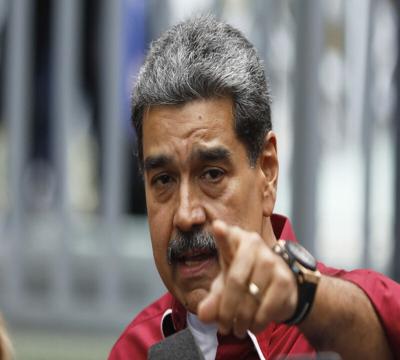A dangerous diplomatic row in threatening to erupt between Trinidad and Tobago and Venezuela after the Bolivarian Republic issued a formal communiqué on Friday condemning what it described as an “irate and unjustified” response by Prime Minister Kamla Persad-Bissessar to allegations made by President Nicolás Maduro about Trinidadian nationals entering Venezuelan territory with criminal intent.
In its June 6 statement, released from Caracas, the Venezuelan government expressed “profound surprise” at the Prime Minister’s warning that “any unidentified vessel entering T&T’s waters will be met with deadly force”, calling it an overreaction that risks undermining long-standing bilateral relations.
The Venezuelan communiqué claims that its authorities “captured criminals of Trinidadian origin”, who allegedly confessed to planned activities and were supported by “compelling evidence.” It accused Persad-Bissessar of responding to President Maduro’s legitimate concerns with hostility, warning that her "virulent and high-sounding attitude raises serious suspicions of complicity" and compromises cooperation.
The diplomatic exchange was triggered by comments made by Prime Minister Persad-Bissessar at a post-Cabinet news conference on June 5, during which she addressed allegations first aired by President Maduro on Wednesday. Maduro claimed that an armed group of men, supposedly from Trinidad and Tobago and carrying “weapons of war,” had been intercepted attempting to enter Venezuela.
Speaking at the Red House, Persad-Bissessar dismissed the allegations as unsubstantiated, saying her government had seen “no evidence to validate” any such incursion. She warned both the Venezuelan government and alleged smugglers in T&T that the Republic’s maritime borders are “off-limits”, and declared that the Coast Guard had authority to use deadly force against illegal intrusions.
“We take any threats against our sovereignty seriously,” the Prime Minister said. “If Mr. Cabello’s comments are a veiled threat to enter T&T territory, they should reconsider any such intention.”
She also suggested a review of how T&T deals with Venezuelan migrants, especially those of military age, citing security concerns.
The Prime Minister’s stance drew immediate criticism from former Prime Minister Dr. Keith Rowley, who labeled her rhetoric as reckless and inflammatory.
Posting on social media under the caption “SHOOT FIRST, FIND OUT AFTER,” Dr. Rowley described the comments as “madness,” warning that Trinidad and Tobago is not in a position to militarily confront its highly armed neighbour.
“To throw down a ‘deadly force’ gauntlet to Venezuela can only be viewed as ‘powerful stupid’,” Rowley wrote. “We’ve gone from diplomacy to dangerously provocative rhetoric in an apparent attempt to curry favour abroad.”
Rowley also expressed concern that the Dragon gas deal — a potential energy lifeline involving Venezuelan gas reserves — is now likely “dead” due to the “intemperate” handling of bilateral relations.
Also weighing in was former Minister of Foreign and CARICOM Affairs Dr. Amery Browne, who criticized the government’s approach as reckless and “megaphone diplomacy.”
Dr. Browne urged the Ministry of Foreign Affairs to engage directly with the Venezuelan Ambassador, demanding full consular details on any detained nationals. He pointed to international legal protocols requiring notification and cooperation in such matters, lamenting the government’s failure to initiate formal discussions.
“Media conference rhetoric is no substitute for diplomacy and dialogue,” Browne stated, emphasising that Trinidad and Tobago is a non-aligned nation and should seek to de-escalate the situation through established diplomatic channels.







